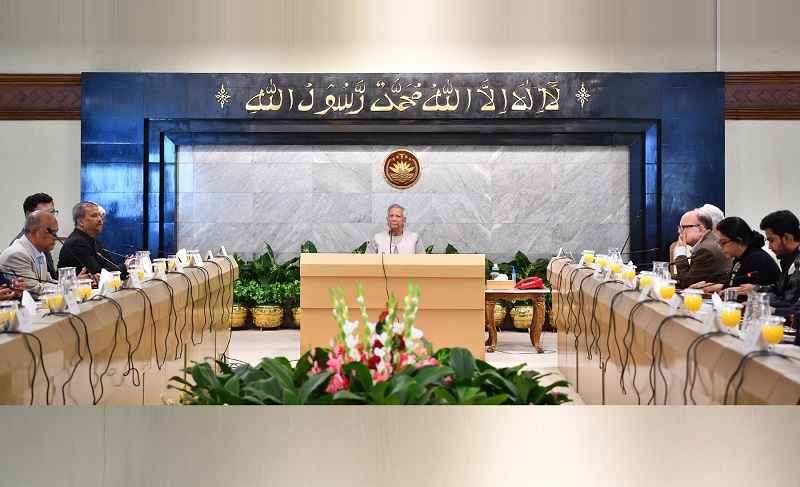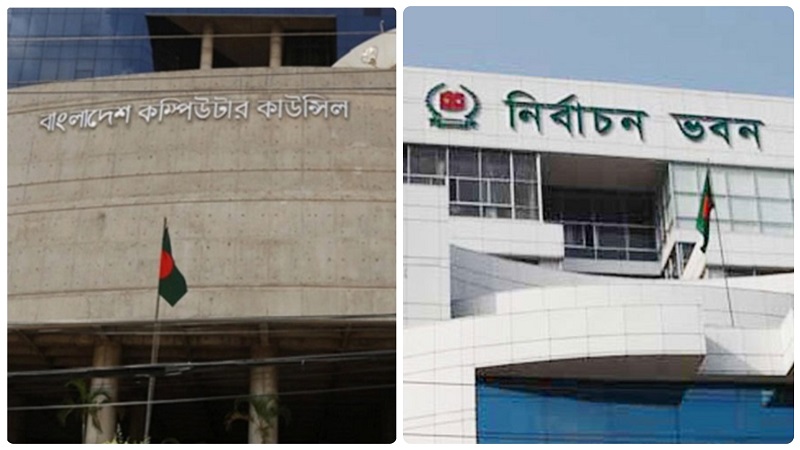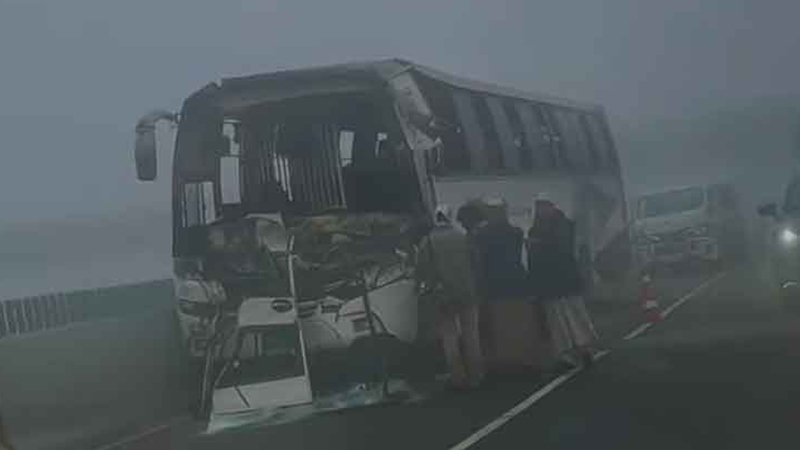The health safety guidelines set by the government to prevent risks of coronavirus transmission are largely being ignored by public transport authorities.
Such scenario was observed during travelling by mostly vacationers before and after the just-ended Eid festival making their journeys on public buses, river vessels, ferries and even on the state-owned trains.
Despite realizing almost double the pre-fixed travel fares the private transport owners and their staff members seem to care less about public health safety rules in preventing coronavirus transmission. On the other hand, many of the travelers were said to be ignoring wearing face masks, maintaining physical distances and using hand sanitizers.
Enforcement of regulations, to maintain social distances inside public buses, river transports and trains as well as at the terminals of those transports, is almost non-existence. Different agencies responsible for enforcing the rules are also found relaxed in performing their duties.
In these circumstances, experts are fearing further surge in transmission of the virus which apparently worsen the existing corona crisis.
It should be mentioned that more than a week has passed since the festival was celebrated on August 1. Millions of people moved around and traveled amid huge rush and crowds at every terminals or stations of bus, launch and trains.
Salma Begum, who was traveling to Dhaka from her village home in Madaripur district by a private bus, said, “I have paid twice the fare for a one-way ticket to secure an empty seat next to mine. But I was given only a single seat and another passenger was sitting beside me ignoring the health directives.”
“Even, there were huge crowds at both Kathalbari and Mawa launch terminals,” she said adding that every launch was carrying passengers even more than their capacities.
Asked, Rashidul Islam, the conductor of Sonali Paribahan, claimed that the system, which had been enforced earlier to maintain social distance or health safety guidelines, is no more active.
An official of the Bangladesh Inland Water Transport Authority (BIWTA) at the Kathalbari Ghat said that they were facing crisis of ferries and launches.
“Due to strong current in Padma River, it is taking almost twice the usual time for each trip and therefore, people have to wait much longer at the terminals and crowds are also being created for the same reason.”
Meanwhile, health experts, warned that Bangladesh might see a spike in Covid-19 cases after the Eid-ul-Azha, just like the country had recorded an increase in number of cases after the last Eid-ul-Fitr festival.
Earlier in July, the National Technical Advisory Committee (NTAC) on Covid-19 had recommended taking several measures, including avoiding setting up cattle markets in four coronavirus hotspot districts -- Dhaka, Narayanganj, Gazipur, and Chittagong -- in order to check the transmission.
Alongside the promotion of online cattle markets, they also had stressed on the need for strictly implementing health safety guidelines.
Professor Shah Monir Hossain, a member of the public health advisory committee of the Directorate General of Health Services (DGHS), said, “Many people, as noticed, did not follow the health safety guidelines in their activities, particularly in travelling home or buying and selling animals and distributing meat during the Eid festival.”
Hossain fears further surge in the transmission of coronavirus.
“As movement largely took place without proper enforcement of any preventive measures, there should definitely be a spike of Covid-19 cases in the country,” he said.
However, Prof Be-Nazir Ahmed, a former DGHS director (disease control), said that although there is no doubt about the increase of Covid-19 cases following the holidays, the number of infections could be comparatively lower.













